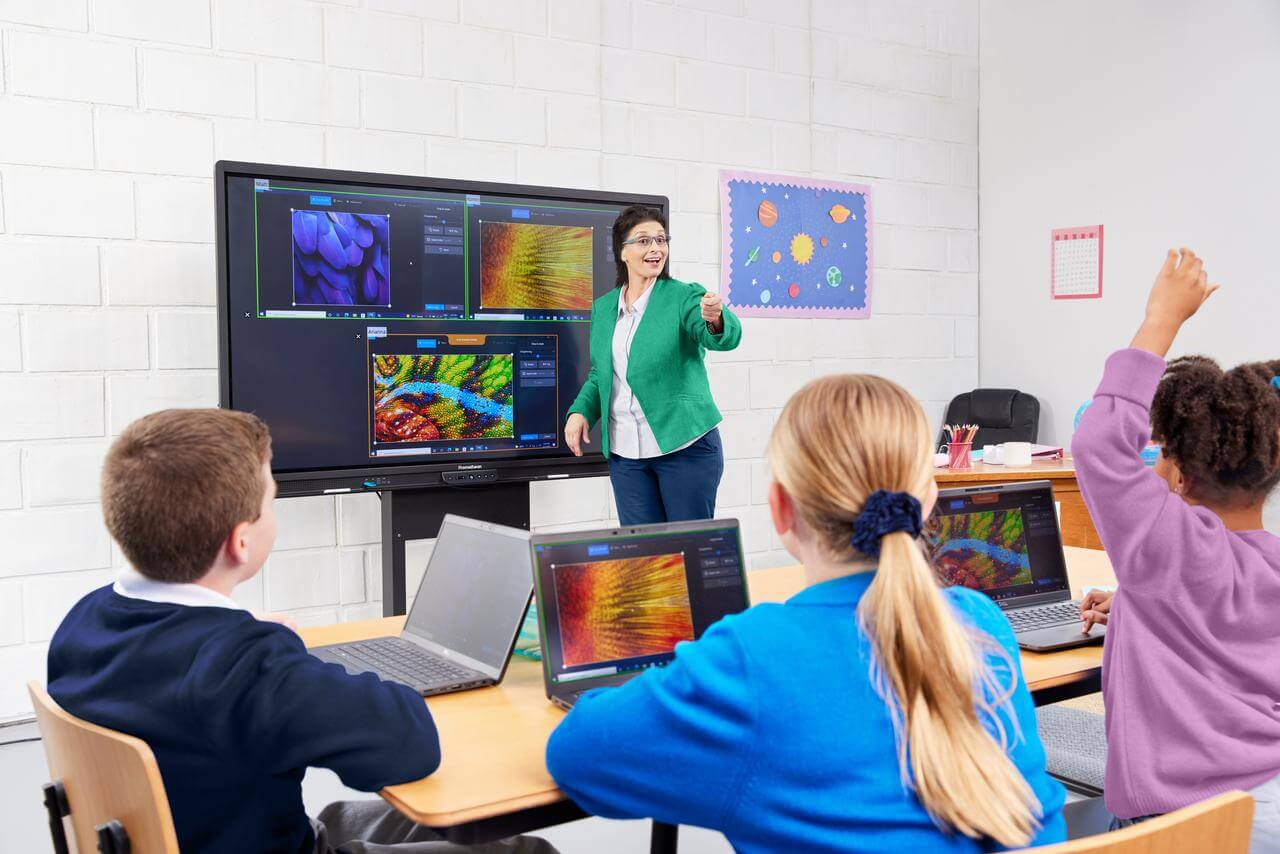Master Primary Science Concepts with Quality Tuition in Singapore
Master Primary Science Concepts with Quality Tuition in Singapore
Blog Article
A Comprehensive Guide to the Numerous Knowing Methods in Main Scientific Research Instruction
The exploration of diverse understanding approaches in main science direction presents a possibility for teachers to enhance pupil involvement and comprehension substantially. By checking out hands-on learning methods, inquiry-based techniques, and collective approaches, we can recognize effective techniques that cater to various finding out styles.

Hands-On Learning Methods
Hands-on knowing strategies play an essential function in main science direction, engaging students in energetic exploration and trial and error. These approaches permit learners to connect straight with products and phenomena, promoting a much deeper understanding of clinical ideas. By using manipulatives, designs, and real-life experiments, teachers create an environment where pupils can observe, assume, and test their concepts.
Such strategies not only improve comprehension but additionally cultivate essential reasoning and problem-solving abilities. When students take part in activities like constructing straightforward makers, growing seeds, or carrying out chemical reactions, they are urged to ask inquiries and seek responses through their own monitorings. This experiential method helps to demystify complex scientific principles, making them extra easily accessible and relatable.
Moreover, hands-on understanding advertises partnership amongst peers, as students usually operate in groups to conduct experiments or share searchings for. This teamwork not just improves their knowing experience however likewise establishes vital social skills. Inevitably, incorporating hands-on techniques in key science guideline fosters a long-lasting love of knowing and interest concerning the environment, laying a solid foundation for future scholastic pursuits in scientific research and beyond.
Inquiry-Based Knowing
Inquiry-based discovering is an educational strategy that motivates students to ask concerns, investigate sensations, and construct their own understanding of clinical principles. This technique changes the focus from typical teacher-led instruction to an extra student-centered experience, where students take the initiative in their educational trip. By fostering curiosity, inquiry-based discovering advertises much deeper engagement with the product, permitting students to explore subjects in a meaningful context.
In technique, this technique often entails hands-on experiments, monitorings, and critical reasoning activities that align carefully with the scientific technique. Trainees are motivated to develop hypotheses, layout examinations, and evaluate data, which grows crucial abilities such as logical and analytical reasoning. The role of the instructor in this framework is to assist in exploration, directing students through the query process while motivating independent thought and cooperation.
Furthermore, inquiry-based learning nurtures a feeling of possession over the understanding procedure, encouraging pupils to go after understanding proactively. This technique not only improves understanding of clinical principles yet also fosters a long-lasting love for discovering, outfitting students with the abilities necessary to navigate an increasingly intricate world.
Collaborative Understanding Approaches
Collaborative understanding methods equip students to involve in meaningful interactions with peers, promoting a common obligation for their educational outcomes. In primary science direction, these methods urge learners to collaborate to discover clinical ideas, fix problems, and perform experiments (primary science tuition Singapore). By joining team tasks, pupils can take advantage of diverse viewpoints, permitting richer understanding and retention of scientific expertise
One secret facet of collaborative learning is the emphasis on interaction skills. Students need to express their thoughts, listen check that actively to others, and work out ideas, all of which are essential competencies in both scholastic and real-world contexts. This social interaction not only boosts their understanding of clinical concepts however also promotes teamwork and conflict resolution abilities.
When trainees see the value of their payments within a group, see this website they are more likely to take possession of their understanding journey. On the whole, including collective knowing methods in key science instruction grows a dynamic learning atmosphere that prepares students for future academic and social obstacles.
Innovation Combination in Scientific Research
The integration of innovation in primary scientific research direction boosts finding out experiences by providing ingenious devices and resources that sustain numerous training approaches, including joint knowing - primary science tuition Singapore. The use of digital systems, simulations, and interactive applications permits trainees to engage deeply with scientific ideas, promoting a much more hands-on method to knowing
Digital laboratories, as an example, allow students to conduct experiments safely and effectively, advertising inquiry-based discovering. These tools can mimic real-world scientific circumstances, enabling students to visualize complicated procedures that would be challenging to reproduce in a typical classroom setting. Innovation cultivates communication and collaboration among pupils, as they can share findings and function with each other on jobs through online systems.
In addition, multimedia presentations and instructional video clips can enhance lessons by dealing with diverse understanding designs, making abstract principles much more available. Data evaluation devices additionally equip trainees to gather and interpret clinical data, enhancing critical assuming abilities. Overall, the calculated consolidation of innovation in main scientific research guideline not just improves involvement however additionally prepares pupils for a technologically sophisticated culture, furnishing them with necessary abilities for future scientific endeavors.
Separated Direction Methods
Distinguished guideline techniques are necessary for attending to the varied demands of students in key science education. These methods enable instructors to tailor their mentor techniques to fit varying abilities, interests, and discovering designs within the class. By employing distinguished direction, instructors can create an inclusive atmosphere that fosters involvement and boosts understanding of scientific ideas.
One effective technique is to use versatile organizing, which allows trainees to collaborate with peers at similar ability degrees or with differing point of views. This method urges peer learning and promotes critical thinking. Furthermore, offering selections in jobs can equip students, permitting them to select jobs that resonate with their passions while still meeting curricular purposes.
Moreover, incorporating tiered projects is one more important method. Deliberately jobs with differing levels of complexity, educators can make sure that all pupils are suitably challenged, no matter their effectiveness. Using developmental analyses to determine comprehending further allows teachers to readjust their training techniques dynamically, guaranteeing that each learner gets the assistance they need.
Ultimately, applying distinguished instruction techniques in main scientific research education and learning not just enhances student home knowing end results but additionally grows an interest for scientific research, preparing trainees for future scholastic searches.

Final Thought
In summary, reliable primary science instruction necessitates a diverse approach that encompasses hands-on discovering, inquiry-based techniques, and joint methods. The integration of modern technology and differentiated guideline further accommodates varied learning designs, cultivating an environment conducive to expedition and essential thinking. By implementing these strategies, educators can enhance trainee engagement and comprehension, ultimately nurturing a lifelong interest for scientific research and inquiry. Such comprehensive approaches are important for developing notified and curious future researchers.
The exploration of diverse discovering methods in primary scientific research instruction offers an opportunity for educators to boost trainee interaction and understanding significantly.Hands-on knowing strategies play a pivotal duty in primary science direction, involving students in energetic expedition and trial and error.Inquiry-based learning is an instructional method that encourages trainees to ask questions, check out phenomena, and build their very own understanding of scientific principles.Collective discovering strategies equip students to engage in purposeful interactions with peers, promoting a shared duty for their educational end results. Generally, integrating collective understanding strategies in key scientific research instruction grows a vibrant knowing atmosphere that prepares trainees for future scholastic and social obstacles.
Report this page